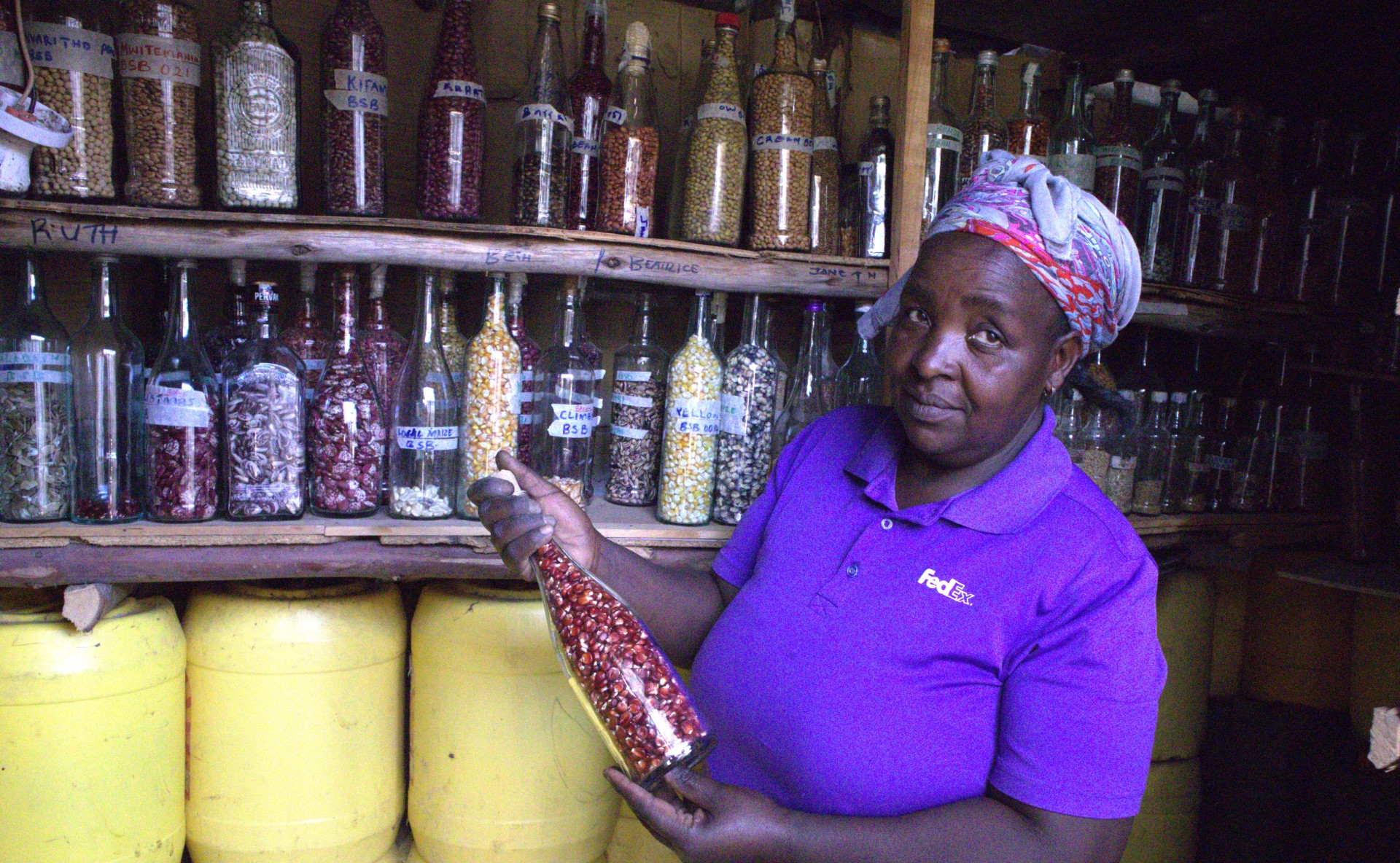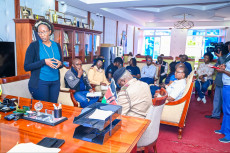- Seed Savers Network promotes seed access for farming communities and mainly deals with small-scale farmers.
In a seemingly barren rocky land perched atop a hill in the Langalanga area in the Gilgil Sub-county, of Nakuru County lies a marvel that makes many wonder about its possibilities against all odds.
As Beatrice Wangui Mwangi welcomes us into her home, the sound of a bleating goat that has just given birth to twins and a raised water tank visible from afar, clearly indicates that she is a farmer.
We settled down outside under a roof that seemed like a meeting place, we were right; it is where she hosts her farmers' group meetings for free.
Beatrice is one of the many beneficiaries of Seed Savers Network's training; a social enterprise working with smallholder farmers to improve seed access, and Agro-ecology, which she admits has helped her in her agriculture venture.
"The training that I received from Seed Savers Network is my guiding light to date. It is at the centre of my farming venture. Were it not for the training, I don't know how my life would be," she says.
Read More
Beatrice and her husband purchased this land here ten years ago. Because they had been displaced from Molo during the 2007/08 post-election violence, they hurriedly bought this rocky piece of land just to have a place to call home.
Her farm teems with life; all sorts of traditional vegetables thrive with ease, even though she is one of the residents in the area without piped water. There is lack of enough water pressure to pump water uphill where her farm is, but this did not faze her.
This small-scale farmer has used the training on water harvesting. She has installed three water tanks on her farm that collect and store 60,000 litres when full, which can last her from one season to another for irrigation and domestic use.
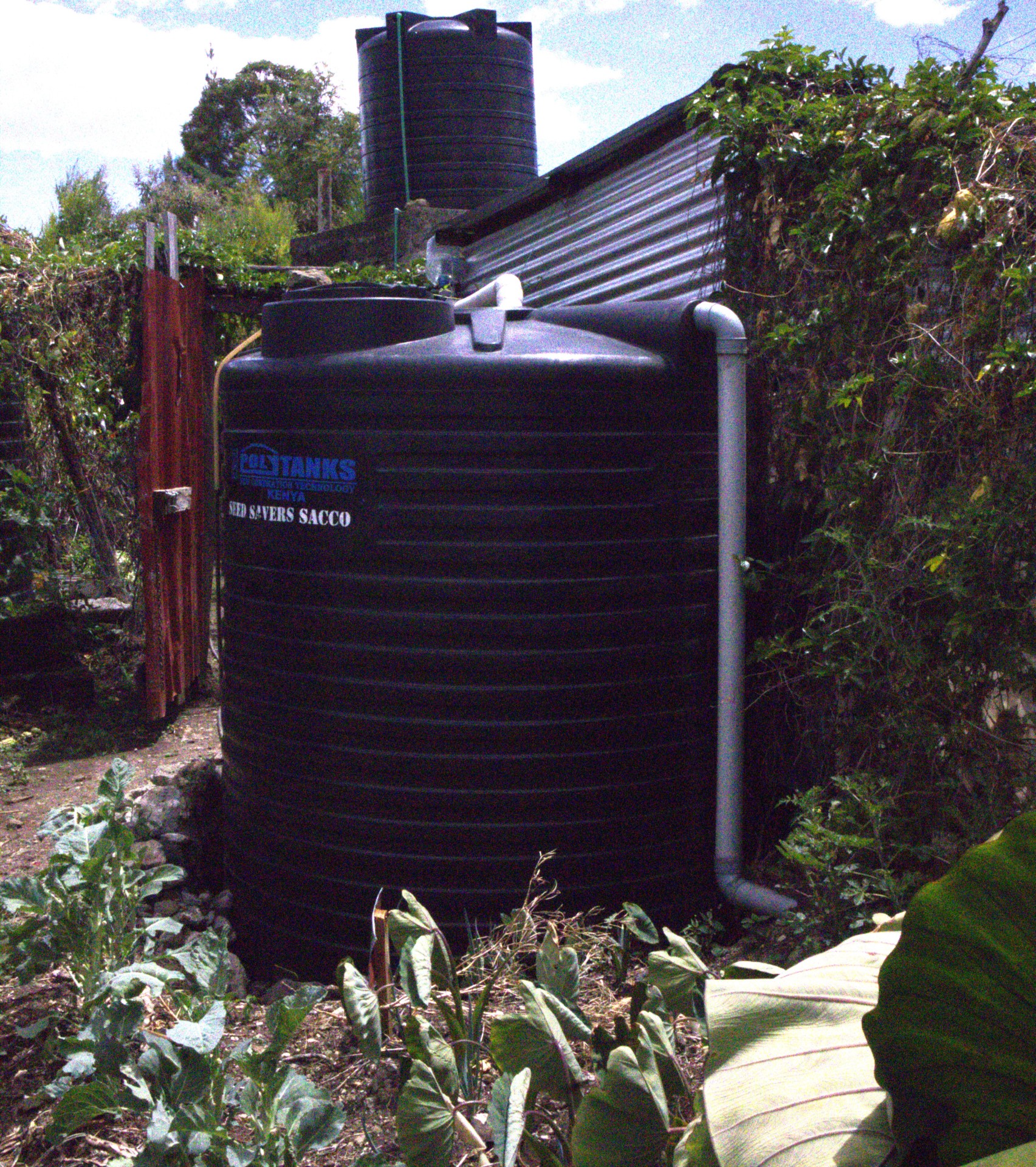
Beatrice says she acquired two of the tanks from the Seed Savers Women Sacco, which allows women to access credit at 1% interest and pay it back in easy instalments.
Additionally, she has built an underground tank that holds 30,000 litres of water from the proceeds of her farm. The first section of her farm is a nursery area where the seeds are grown and then transplanted to the field. Unlike in ordinary seed nurseries, where they are covered with dry matter, she has used a gourd tree instead.
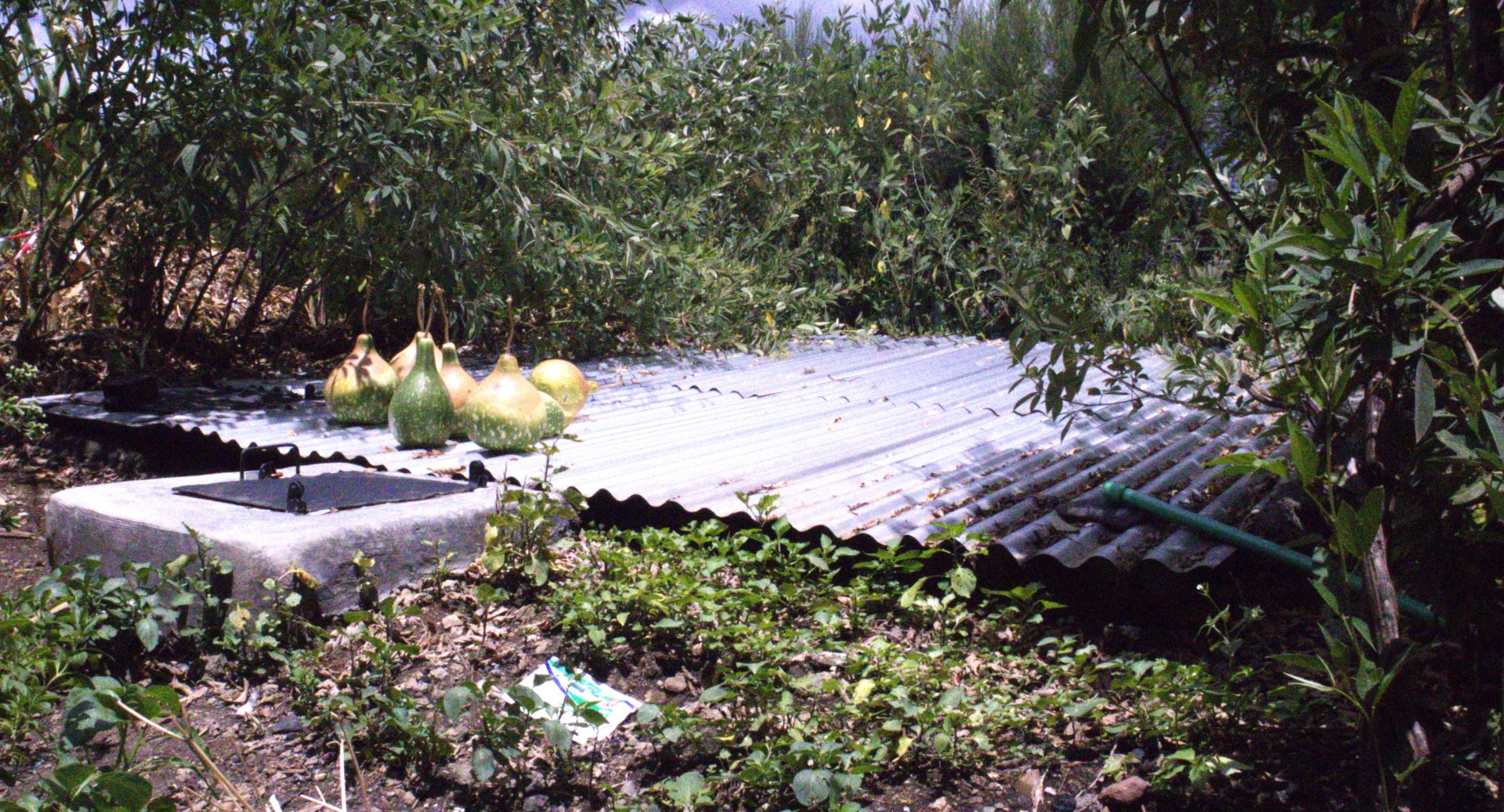
"I decided to use gourd tree as nursery cover because when it is mature it will provide gourds for use at home and for sale," she says.
Next to the nursery are traditional vegetables grown by the Hügelkultur method, a horticultural technique in which a mound is constructed from decaying wood debris and other compostable biomass plant materials. In her farm, Beatrice doesn't use synthetic fertilizer or chemical spray on her farm; instead, she composts her own manure and uses ground fermented pyrethrum leaves as pest repellants.
At one end of the farm is Mr Kimani, Wangui's husband; he is busy stretching a shade net over a multistorey garden with spinach full of life as a water sprinkler sprays water gently onto a storey. This section holds 1,200 spinach stems.
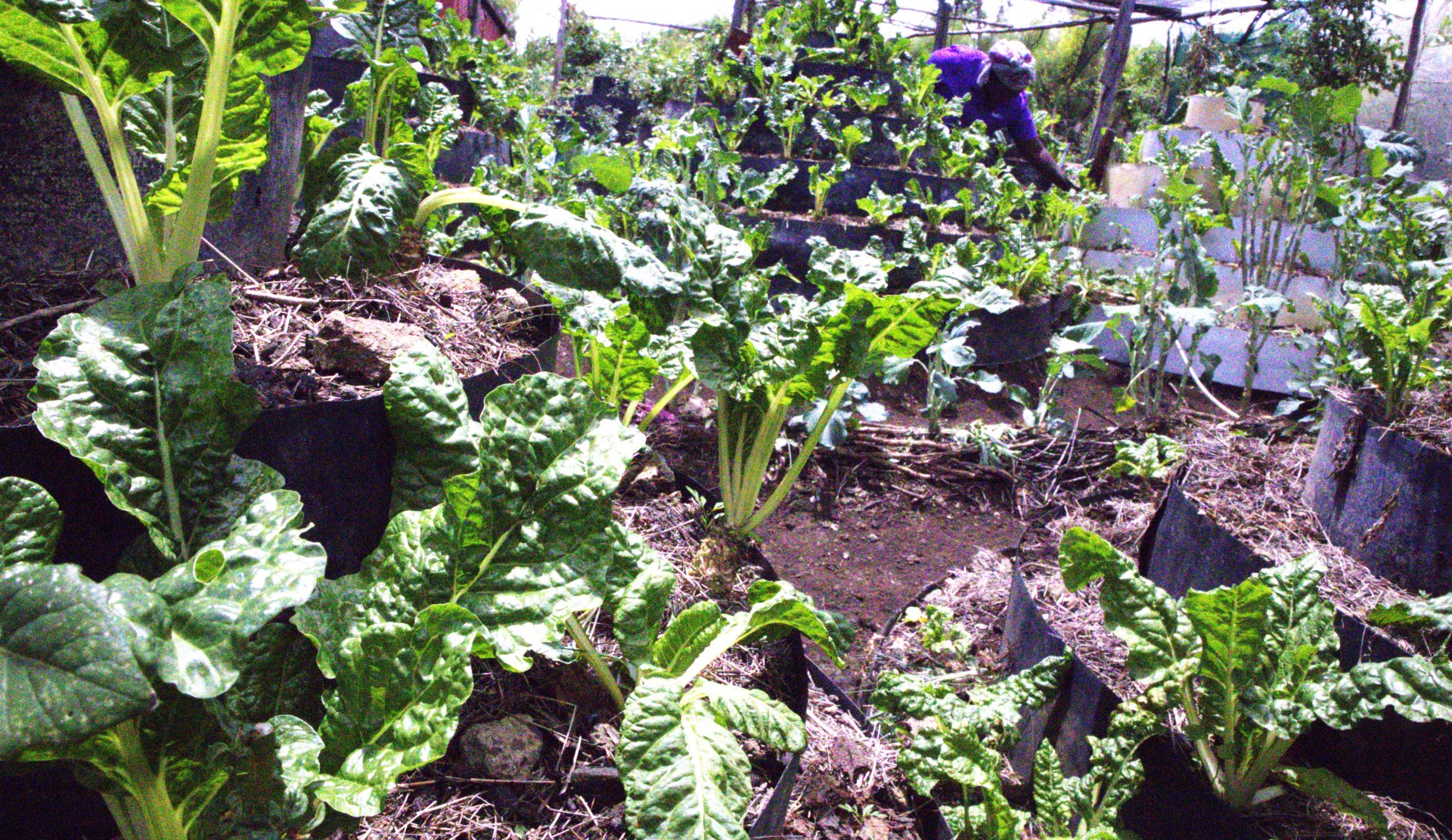
"This is the heart of the farm. In dry season, I sell a leaf of spinach at Ksh 1, and on a good day, I can pick over a thousand leaves. Do the math," she pauses with a broad smile.
Things are not the same for Naomi Nyambura in Njoro, 68 kilometres away from Beatrice's farm. The fangs of climate change have greatly affected her farming venture. Her kitchen garden is dry, with no water storage tanks and no seed-saving skills.
"I used to plant carrots, kales, traditional vegetables, onions and many more in my garden, but since the rainfall pattern changed, I am unable to do that because I depend on rainfed agriculture," Naomi says.
Like many farmers, she lives far from a river, where she can't get water for irrigation. Using tap water to irrigate her crops will result in a huge water bill that is not sustainable.
Unlike Beatrice, Naomi does not know seed selection, saving, and germination testing skills. Therefore, she is at risk of buying the wrong seeds or ones with a very low germination percentage, which will affect her yields.
She is left at the mercy of the rain patterns; if it changes and returns to normal, her venture will thrive again.
Seed Savers Network promotes seed access for farming communities and mainly deals with small-scale farmers.
Lydia Nyambura, a Program Officer at Seed Savers Network, says that the organization has trained over 78,200 farmers across the country in Agroecology.
"We train the farmers on seed saving, tree planting, water harvesting. All these are meant to enable farmers have a vibrant kitchen garden to sustain them," Lydia says.
She says the organization has different programmes in over 20 counties in Kenya.
"Our goal is to achieve a food secure community, through agroecology," Lydia adds.
According to the Integrated Food Security Phase Classification Report 2023, the most recent data shows that Kenya's food security situation has probably never been worse. Over 5.4 million people are projected to face severe food insecurity between March and June of this year, and this situation is only expected to get worse in the months to come.
According to relief web data released last year, record levels of acute food insecurity worldwide persisted due to protracted food crises and new shocks. In 48 countries, 238 million people faced high levels of acute food insecurity, 10% more than in 2022.
The role of Kitchen Garden cannot be overstated as a solution that can address food insecurity and bring in self-reliance, sovereignty and dignity. Little spaces surrounding the home, as little as ten square meters, can significantly impact many people's lives, given the diminishing land resources.
In 2020, during the COVID-19 pandemic, the Kenyan government embarked on an A Million Kitchen Initiative to reduce the national food problem. The programme was successful in helping 206,742 households impacted by the COVID-19 outbreak establish kitchen gardens.

